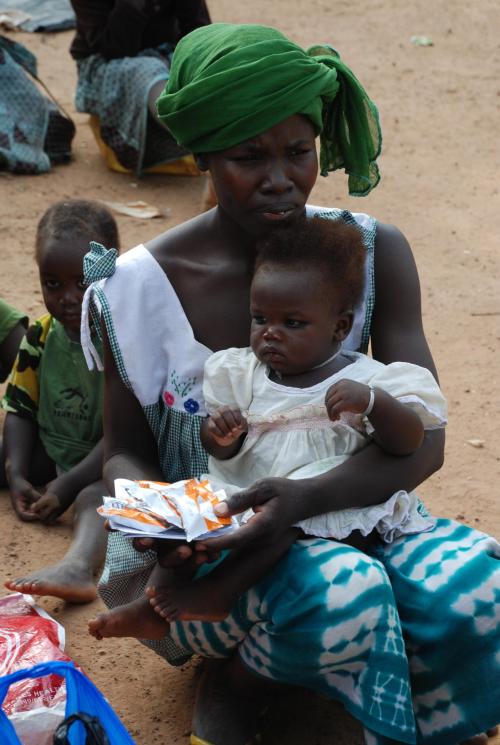
Millions of infants and young children in low- and middle-income countries are vulnerable to undernutrition and impaired neurobehavioral development, due to nutrient gaps in their typical diets. Small-quantity lipid-based nutrient supplements (SQ-LNS) were designed to be provided during the complementary feeding period (6-24 months of age) when nutrient density requirements are high, and diets are likely to be deficient in multiple micronutrients and possibly essential fatty acids.
These food-based supplements are designed for the prevention of malnutrition in vulnerable populations. SQ-LNS provide multiple micronutrients embedded in a small amount of food (~20 g/d, 100-120 kcal/d) that also provides energy, protein, and essential fatty acids. The usual formulation of SQ-LNS is fortified with 22 vitamins and minerals, including micronutrients (such as vitamin A, B vitamins, iron, etc.) as well as macrominerals (calcium, potassium, phosphorus and magnesium). SQ-LNS for children generally contain the daily recommended intake of each micronutrient, and lower amounts of the macrominerals.
In providing these nutrients regularly between 6-24 months of age, SQ-LNS are effective in preventing stunting, wasting, micronutrient deficiencies and developmental delays in vulnerable children. Evidence also suggests they can reduce child mortality within the same age range.
Like multiple micronutrient powders (MNPs), SQ-LNS can be mixed with foods prepared in the home or consumed as is, allowing for flexibility in feeding practices. The small daily ration also leaves room for other complementary foods in the diet in addition to breastmilk, such as locally available nutrient rich foods, and the child is likely to be able to consume the entire ration in one day and receive the intended doses of micronutrients.
SQ-LNS were recommended in the Lancet 2021 series on Maternal and Child Undernutrition for optimizing health and growth in children. In response to the growing evidence of benefits, a meeting was convened in Washington DC in May 2022 to discuss integrating and scaling-up SQ-LNS within coordinated strategies to prevent child malnutrition, improve child survival, and promote healthy development.